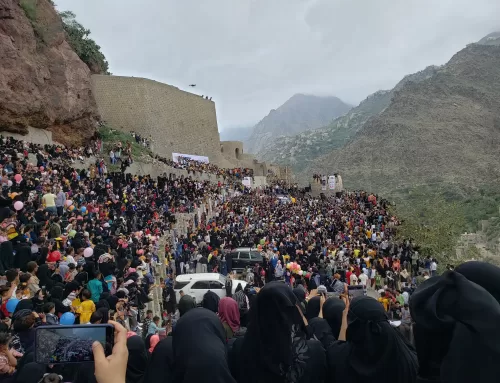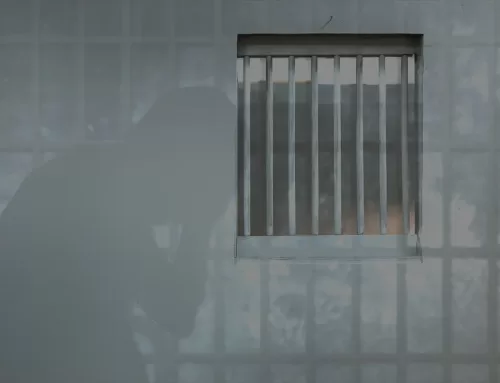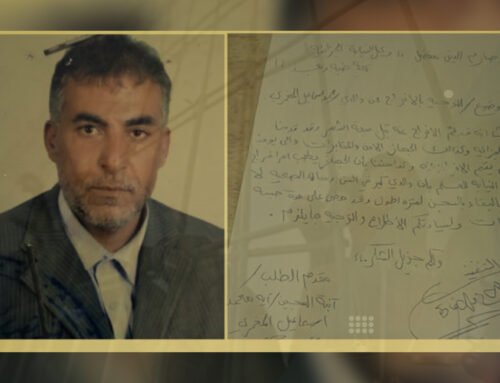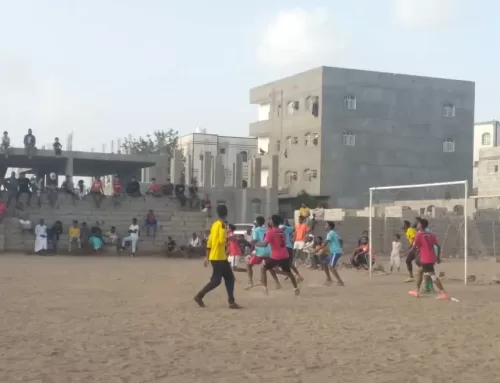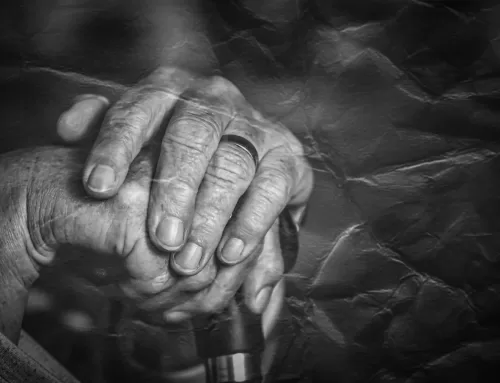An overview of human rights situation in Shabwah governorate
March 19, 2019
Shabwah consists of 17 districts, distributed over an area of over 40,000 square kilometers. Since the beginning of 2015, some of these districts have witnessed armed confrontations between the fighters of Ansar Allah armed group (Houthis) and their former ally former president Ali Abdullah Saleh on the one hand, and the fighters of the resistance groups supported by the coalition led by Saudi Arabia and the United Arab Emirates and the army loyal to President Abd Rabbah Mansour Hadi on the other hand.
Shabwah was not a calm governorate, despite its large area compared to its estimated population of half a million. In the period between 2011 and 2014, the Yemeni army occasionally launched attacks on al-Qaeda militants, whose influence grew as the state’s grip on the governorate loosened.
By late March 2015, the Ansar Allah group (Houthis) had taken control of the capital Sana’a and northern governorates and sought to complete its control over the southern governorates. Following the political divisions, the entry of armed groups into the power struggle, and then the military intervention of the coalition led by Saudi Arabia and UAE, the people of Shabwah continued to pay the price for the bitter fading of the national state’s power and its long absence.
On March 29th, 2015, the fighters of Ansar Allah (Houthis) and the forces of their former ally Saleh took control of the districts near the governorates of Ma’rib and Al Bayda. The district of Beihan, which is adjacent to these two governorates, sustained the largest share of the violence that affected civilians. Nearly 12 days after they took control of the Beihan and Usaylan districts, Ansar Allah (Houthis) and their former ally Saleh were able to take control of the center of the governorate: Ataq. By the end of May of that year, they had taken control of the As Said District. The two sides fought fierce battles involving the Arab coalition aircraft led by Saudi Arabia and the UAE, along with the fighters of the popular resistance and the pro-Hadi Army. These battles have killed scores of civilians and destroyed many civilian objects, including vital facilities such as schools and hospitals.
During the presence of Ansar Allah group (Houthis) in Shabwah, the group was responsible for a number of violations; it carried out arbitrary arrests of civilians and the recruitment of children, as well as planting mines before its withdrawal.
The Beihan and Usaylan districts were the last strongholds of Ansar Allah (Houthis) after their withdrawal in August 2015 from Ataq (governorate center) and the As Said and Al Musaynaa districts. Following the fighting between Ansar Allah and the Hadi forces from mid-December 2017 until early January 2018, Shabwah was completely under the control of the pro-Hadi forces and the UAE-backed Shabwani Elite fighters.
The Shabwani Elite and army units loyal to President Hadi have taken control of Shabwah since January 2018. However, human rights abuses in the governorate have increased, with patterns ranging from arbitrary detention to enforced disappearance and torture. According to the facts documented by Mwatana for Human Rights in Shabwah, the parties to the conflict differ in everything and are alike in one thing; the violation of the rights of civilians.
In the following facts, the bitterness of the state’s fading authority is reflected, and chaos and senseless deaths dominated over the lives of the people. These facts are just examples, of the dozens of cases in which civilians in Shabwah were subjected to multiple abuses, some of which led to death.
At approximately 3:40 pm on Sunday, July 1, 2017, Salem Abdullah Omar Ghaleb, 48, tripped over a landmine while he was going to irrigate his cane farm in the Usaylan District. One of his relatives says: “Salem went to his farm to irrigate the trees he used to plant, but the mine exploded and tore off his right leg and wounded him in different parts of his body.” The place where the landmine exploded was among the places from where the Ansar Allah fighters (Houthis) withdrew in December 2017. “Salem died instantly, leaving behind four children (one son and three daughters) who don’t exceed the age of nine years. His death caused fear and panic among the rest of the people, who left their farms vulnerable to drought and desertification, fearing the presence of mines in the farms or on the way to them.”
Children were not safe either from the Ansar Allah (Houthis) violations in Shabwah; 15-year-old Abdul Barri Hassan was arbitrarily detained for nearly eight months. He was arrested in mid-July 2017 at a checkpoint belonging to Ansar Allah (Houthis) at the entrance to the Beihan District. In the following paragraph, the child Abdul Barri tells the story of his arrest and torture:
“At 11:00 am, I was returning from Ma’rib, where my family had been living after the Houthis entered Beihan. I arrived at the Houthi Mawkas checkpoint, where the entrants to Beihan are searched. I was told that I was wanted for interrogation and they took me to the security administration of Beihan and they put me in jail. It was an old prison built of stone and mud, with about 10 prisoners from the residents of the governorate. No one was allowed to visit us. The Houthi supervisor told me that I would be released from prison soon, but ten days later, I was taken to Dhamar Governorate with a group of prisoners. We left Beihan after sunset through the Aqabat al Qanza’, As Sawadiyah and Rada’a road, until we reached Dhamar, where they put us in the traffic administration behind Dhamar University. The prison was small and crammed with a large number of prisoners. We were subjected to psychological and physical torture; the jailers sprayed us with cold water despite the cold winter, and sometimes told a prisoner that his mother or father had died. If we wanted to contact our family, they forced us to use the external speakerphone. They used to put us individually in a small room with no light and no ventilation for half a day, and they called it the “pressure room”. They also forced us to record videos reading sentences they had written in advance to incriminate us.”
The child Abdul Barri was released in March 2018 during an exchange of prisoners and detainees between the two main parties: Ansar Allah (Houthis) and forces loyal to President Hadi.
Mohsen al-Fashi and other Ansar Allah fighters (Houthis) were captured by the forces loyal to Hadi forces on January 5th, 2018. After the battle of Wadi Al Kheir in Beihan, during which they were captured, the prisoners were taken to the central prison in the governorate. According to his statement, during his stay in the Beihan prison, al-Fashi was tortured with sticks, metal wires and sharp instruments. He added: “We were sometimes beaten if we asked for anything from the groceries, and sometimes we were beaten for no reason.”
Based on incidents of violations documented by “Mwatana”, “Shabwani Elite Forces” have committed violations against civilians.
One day in March 2017, Rashid (20 years old) left his family-owned wooden hut in a community for marginalized people in Ataq. Although he suffers from an intellectual disability, his father had managed to secure employment for him as a cleaner in the city. Before noon, Rashid went to buy khat from the market, and then headed to the nearest place where he could beg for some food. On that day, he passed by the Criminal Investigation Department in Ataq to collect the leftover food of the soldiers. Due to his cognitive impairment, the soldiers suspected him and detained him.
In the evening, he did not come back home as usual, so his father went out to look for him. He searched hospitals and reported the disappearance of his son with intellectual disability to the security operations, but found no trace of him. He returned to his home just before midnight, anxious and worried. Then, he thought of contacting one of his acquaintances who is a forensic officer. Abu Rashad said: “The officer told me he would make some calls to look for him. An hour later, he told me that my son was being held in the criminal investigation prison. In the morning, I went there to pick him up from the criminal research department, and was surprised to see bruises and marks of beating on his back. They beat him with electric wires and wooden sticks. I went to lodge a complaint with the security department of the governorate, but they did not respond to me. We are marginalized and we have no tribe or authority to defend us.”
In another incident, a force of about 80 soldiers of the “Shabwani Elite” raided the village of Nokhan in Ataq District, during a mission to arrest a teacher. The force arrived at approximately 02:00 am and the soldiers turned off the external lighting of houses and besieged the house of resident Abdallah al-Sudala from all sides. Concerning that night, al-Sudala said the following:
“One of the soldiers called me and asked me to come down and I complied. The officer told me he wanted to arrest my son, Sami. I told them my son was a teacher and worked in a grocery store to provide for his wife and daughter. I asked him to wait until morning and told him that my son would go to their headquarters in Ataq, but he refused. One of the soldiers fired a bullet into the air, threatening to storm the house. Sami came down in his pajamas, and he was tied up, placed in a military armored vehicle and then taken to an unknown destination.”
The al-Sudala family is living in constant fear over the fate over their son. His father said: “My son is a teacher and a mosque preacher and he has a grocery store. He was never absent from home and his daughter needs his care. His students are waiting for his return. He was arrested on the basis of incorrect information.”
Although some violations of the “Shabwani Elite” against civilians sometimes take a comical turn, arbitrariness and torture soon turn them into tragedies that undermine the future of the population of the governorate. The story of a citizen being arrested and tortured for “not paying the water bill” is an example. More seriously, a young man was arrested for his quarrel with a member of the “Shabwani Elite” and tortured to death for three days.


